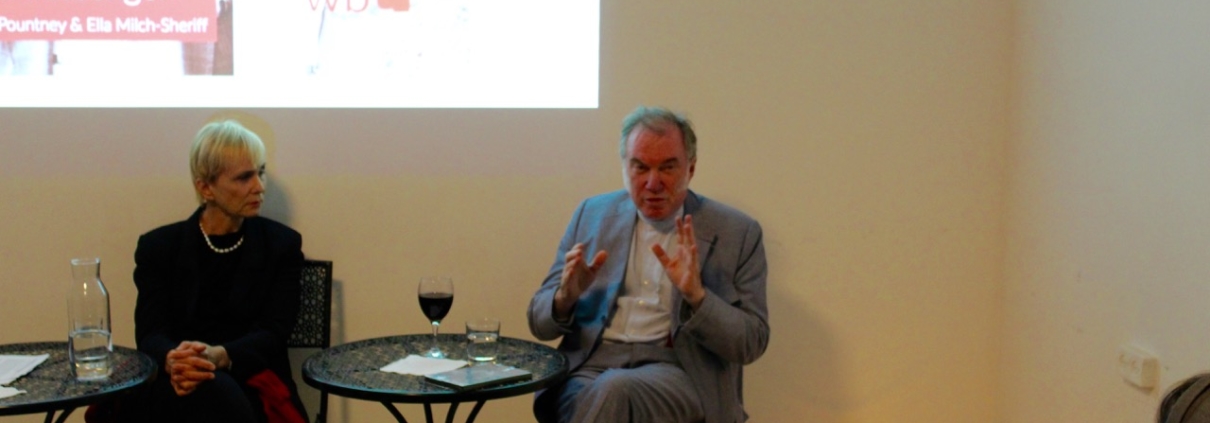“The Passenger” Panel @ WBC – April 8, 2019
The Willy Brandt Center was honoured to welcome Ella Milch-Sheriff and David Pountney, both international opera stars, for a panel featuring Mieczysław Weinberg’s composition “The Passenger” on April 8th, 2019.
Composer Ella Milch-Sheriff is one of Israel’s most performed composers in recent years. Several of her creations, such as “And the Rat Laughed”, „The Banality of Love” and „Baruch’s Silence“, engage with stories from the holocaust and touch on the history of her own family.
Mieczyslaw Weinberg, then a young Jewish composer, fled the advancing German troops in 1939 and crossed the border into the Soviet Union, where he stayed and worked tirelessly until the end of his life.
British-Polish theatre and opera director and librettist David Pountney is known for his productions of rarely performed operas, and his new productions of classic works. In 2010 he staged the premiere of Mieczyslaw Weinberg’s opera “The Passenger”, which deals with guilt and its repression after the Holocaust, and tells the story of women prisoners transported to Auschwitz from all over the world. Based on a novel by Zofia Posmysz, a Polish Auschwitz survivor, Weinberg’s masterpiece had been concealed for more than 40 years and became “somehow itself a real survivor”, as noted by David Pountney. Originally produced by the Bregenz Festival, the highly successful production led to the rediscovery of its composer, Weinberg, and was later staged at the opera houses of Warsaw, London, Houston, New York, Miami, Chicago. In April of this year the production has travelled also to Israel, where it was presented at the Tel Aviv Performing Arts Center.
The panel discussion invoked intricate questions such as how to remain human and humane in a place that has lost all human form, and what role do the arts play when it comes to the murderous oppression of the powerless by the powerful.
Even the nightmare of Auschwitz is a human story, explained David Puntney. “The Passenger” presents young women, victim and perpetrator; one at each side of the fence. “it’s the story about the narrow difference about a human being that is doing the right thing and a human being that is doing a wrong thing,“ continued Pountney, as „the role of art is to look at the most difficult subjects”.
During the discussion, when the question arose whether the holocaust should be represented in artistic performances, both artists agreed that music has the means to express what perhaps cannot be expressed in any other way; not only does it have the power to touch its audience and trigger a deeper compassion and understanding, it also enables us to heal open wounds.



